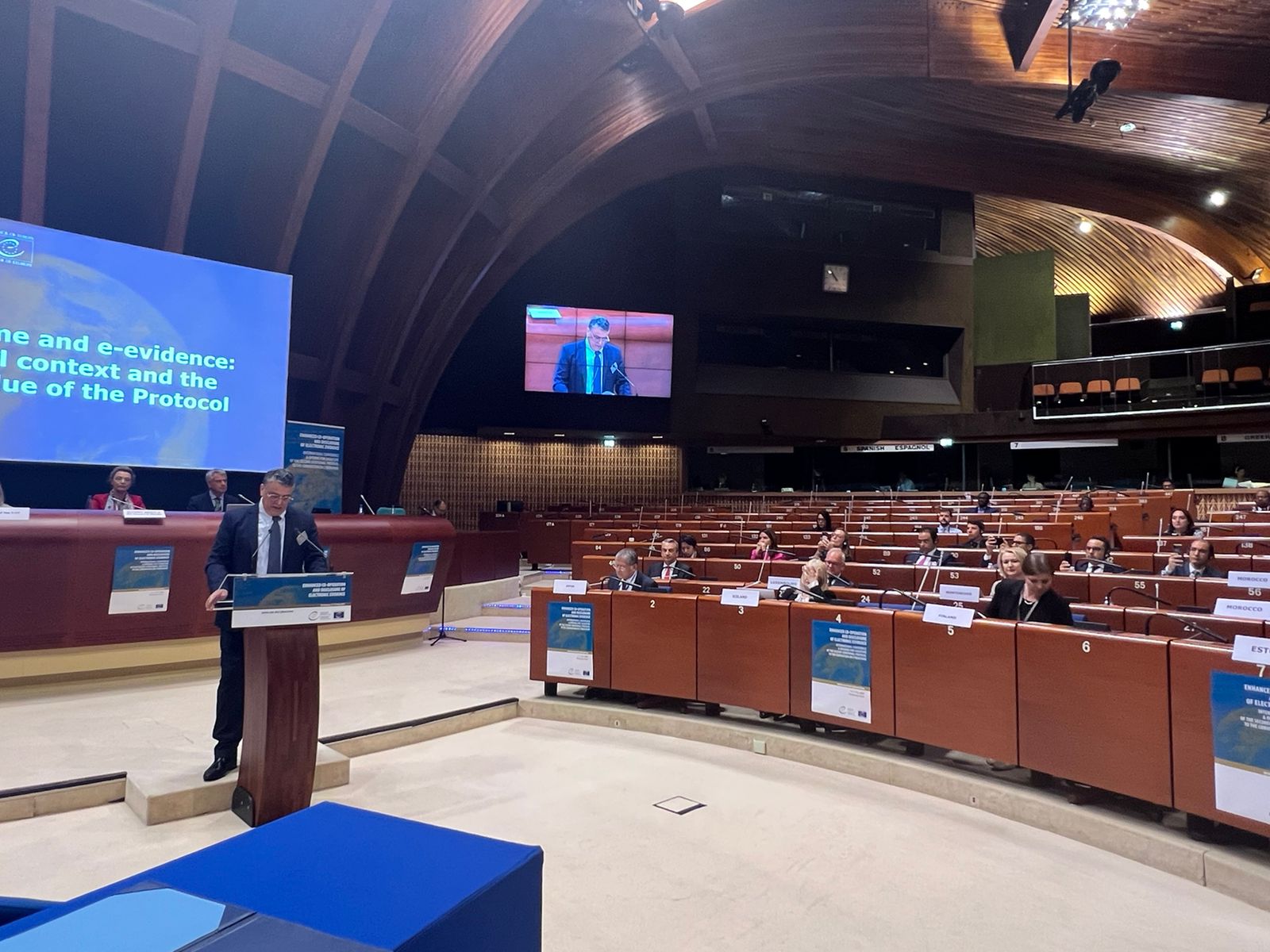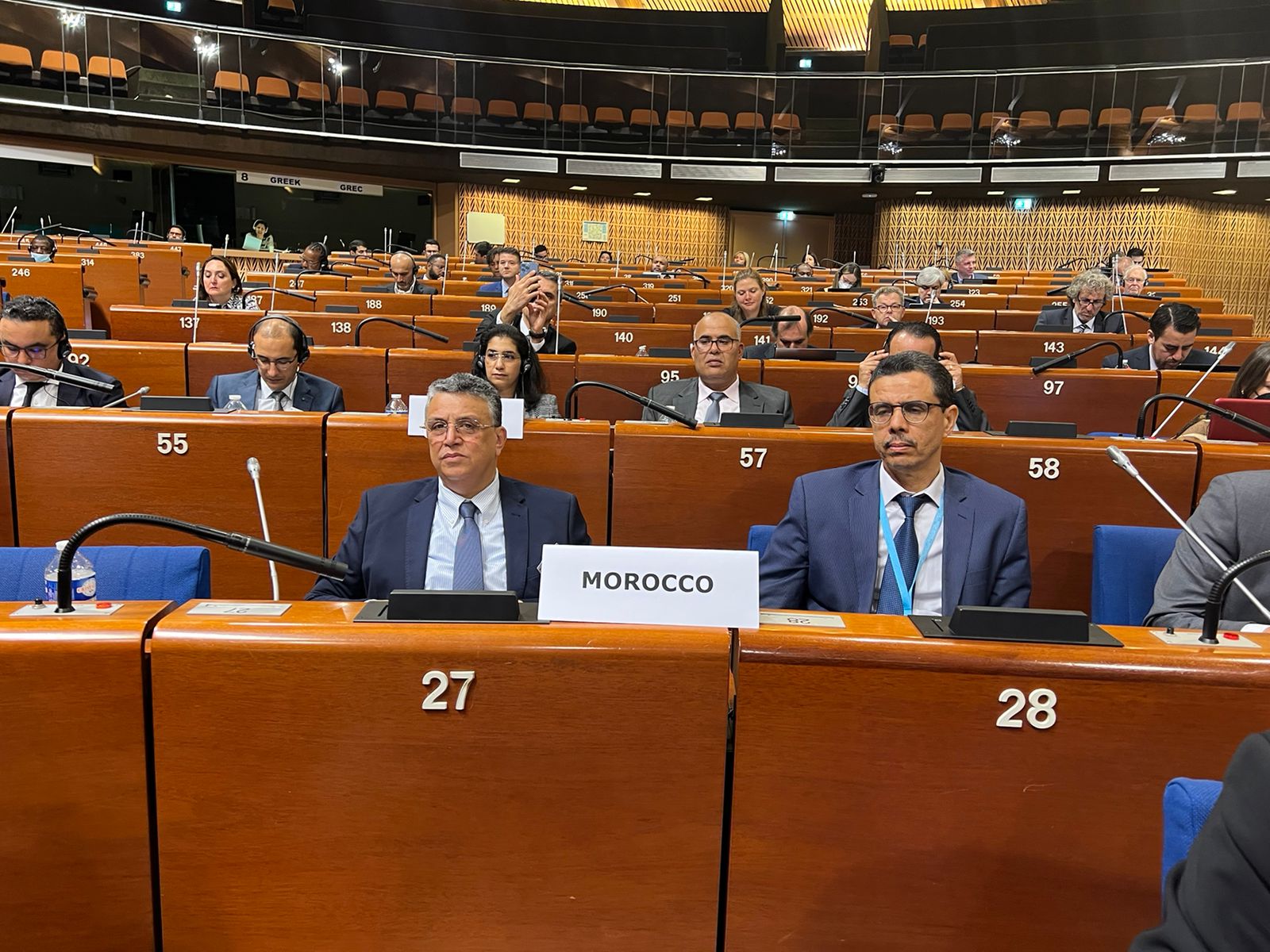Minister of Justice affirms from Strasbourg that the Kingdom is keen to explore new scopes of judiciary cooperation following the signing of the second additional Budapest protocol agreement
Minister of Justice, Mr. Abdellatif Ouahbi has affirmed that the Moroccan Kingdom is keen to explore new scopes of judiciary cooperation, following the signing last Thursday, May 12, 2022 of the Budapest second additional protocol agreement.
In a statement, made in the presence of the European Council SG, the Italian Minister of Justice, ministers, ambassadors and representatives of diplomatic missions, Minister Ouahbi has expressed his hope to limit cybercrimes which is besetting our citizens and punish their perpetrators. Minister Ouahbi’s statement was made following the signing of the protocol in Strasbourg, France, on the margin of the international convention about the Budapest second additional protocol agreement on reinforcing cooperation to fight cybercrimes.
The Minister has called for deploying collective efforts to implement the second additional protocol provisions and improving its mechanism, confirming that the Moroccan Kingdom will remain, as usual, omnipresent in order to achieve these goals, and also completely ready for cooperation with the rest of countries to achieve cyber security for all partner countries.

Minister Ouahbi has considered that everybody, both individually and institutionally, should take into consideration the significance of this big event since it will embody globalization in the judiciary field in all its apparent aspects, “if scholars and theorists talk about globalization in the cultural, political, social and technological fields, it’s high time that globalization makes its entry to the judiciary field from its wider door”.
Minister Ouahbi added “changes occurring in our societies impose on us, as nations and countries, to review many old concepts.. if committing crimes in the past required moving from place to another – as a crime scene- technology progress has overcome this material embodiment and so has dispelled this classical vision”.
Minister Ouahbi continued by saying “cybercrimes and crimes committed by use of modern technology, the Internet, are by nature trans-continental, and do not recognize countries’ geographic borders, nor judicial or security justifications; for this reason has come the Budapest agreement endorsed by the European Council ministerial committee in November 8, 2001 to unify criminal policy of countries members in the field of cybercrimes; it has also established easier coordination between national authorities in the fight against cyber criminality and set up the basis for international cooperation measures characterized by rapidity, efficiency and precision”.

Taking into consideration the growing risks of cybercrimes over the world with all their social, economic and psychological repercussions, the growing risks of armed terrorist groups, which make use of electronic tools to marketing their ideologies for bloodshed and terrorism, the Moroccan Kingdom has expressed its desire to integrate the Budapest agreement along with countries members in October 1, 2018 date when the Moroccan Kingdom became officially a member of the above – mentioned agreement.
Minister Ouahbi has made clear that “the Moroccan Kingdom integration of the Budapest protocol agreement is an expression of its confirmation to fight cybercrimes relentlessly and to confront all kinds of crimes related to computer systems; for that reason, the Moroccan Ministry of Justice has prepared a penal code bill to adapt it to the Budapest agreement; the Ministry has also prepared a penal code bill which incriminates a number of criminal acts in relation with electronic crimes.
The Minister has concluded that the Budapest second additional protocol agreement aims, in principle, at reinforcing cooperation and discover proofs among countries through established modern mechanisms that help facilitate procedures of judiciary cooperation and also help magistrates and judicial experts in criminal justice to gather electronic data and thus allow the possibility for direct cooperation among interested authorities to limit criminal phenomena perpetrated on the net.


